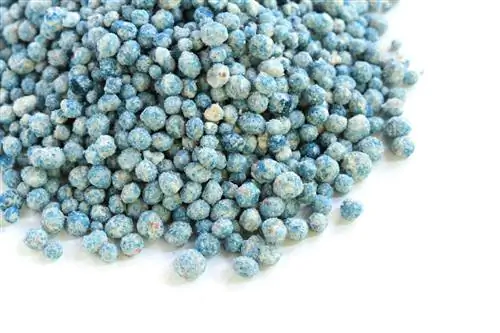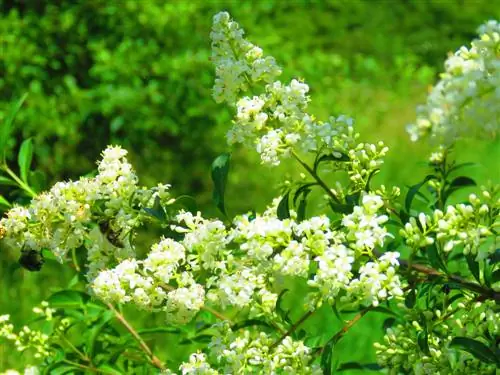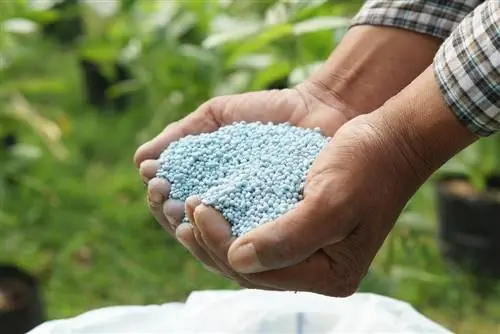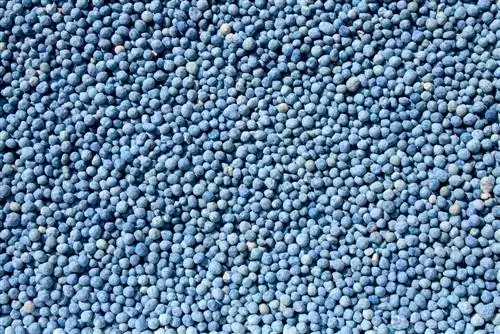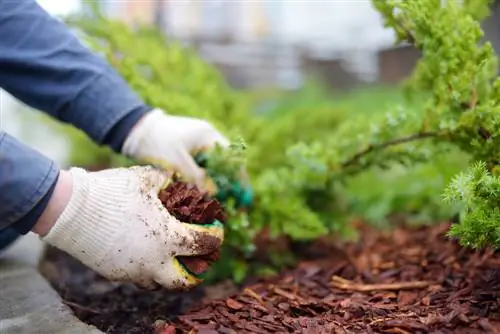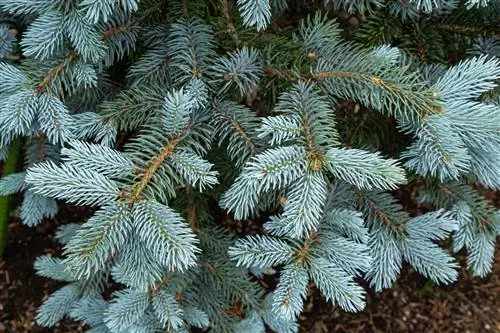- Author admin [email protected].
- Public 2023-12-16 16:46.
- Last modified 2025-01-23 11:22.
Perhaps you have used blue grain unsuccessfully or you still have leftover mineral fertilizer that you no longer want to use. Now you are wondering how best to dispose of blue grain. Find out in our guide.
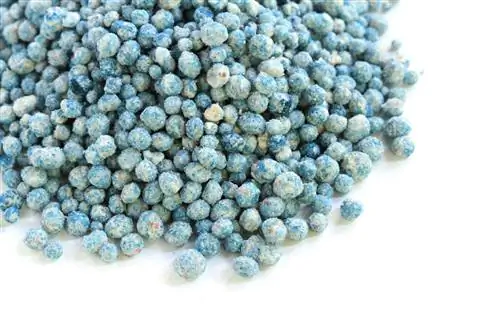
How do I dispose of blue grain correctly?
Blue grain is best disposed of at apollutant collection point. Leave the fertilizer there in its original packaging. If you want to get rid of soil fertilized with blue grain, throw it in theresidual waste bin. It is then burned.
How should I not dispose of blue grain?
Do not dispose of leftover blue grain fertilizer in the following ways:
- put on thecompost
- pour into thedrain
- onbedsdrain
Why shouldn't I compost soil fertilized with blue grain?
You should not add soil fertilized with blue grain or pure blue grain fertilizer to the compost because you would then eradicate or drive away theinsects and microorganisms that are absolutely necessary for the composting process. In addition, compost mixed with mineral fertilizer could later harm the plants in various ways - from stunted growth to death.
Why shouldn't I dispose of blue grain down the drain?
If you dispose of blue grain down the drain, theconcentrated nutrients contained in the fertilizer end up in the wastewaterThere they cause serious, sometimes irreparable damage that can affect all of us. That's why you should never pour leftover blue grain down the drain - even if the temptation is very great, especially with liquid fertilizer.
What speaks against emptying blue grain on beds?
Emptying blue grain residues on bedscompletely messes up the vegetation Because in this way the bed plants receive more nutrients than they need and can process, which in turn causes unnatural growth or promotes a disruption of the same.
It should also be borne in mind that blue grain is a purely mineral artificial fertilizer that does not contain any organic materials, therefore does not provide food for microorganisms and thus affects the natural balance in the garden soil and the formation of humus.
Tip
Use blue grain wisely
Blue grain is controversial, but in certain cases it can save plant life. Nevertheless, you should use the chemical agent carefully. Only fertilize with it if the plant in question can tolerate blue grain and there is either an increased nutrient requirement or a deficiency.

